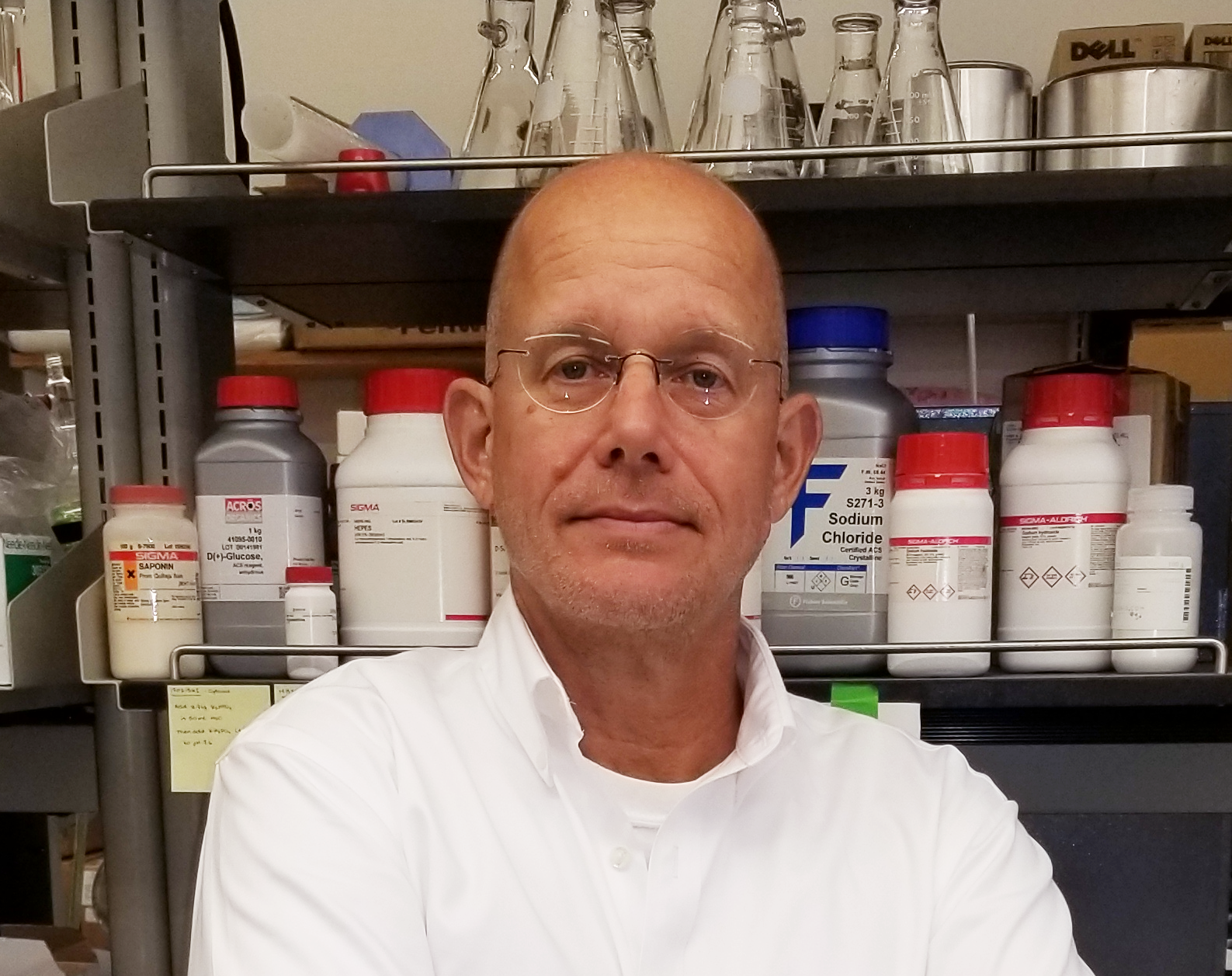The Biochemistry of Antimalarial Drug Resistance by Dr. Paul Roepe, Professor & Co-Director, Georgetown University Center for Infectious Disease, Georgetown University, Department of Chemistry

The Department of Chemistry Presents, via In Person and Online Zoom Presentation: Paul Roepe, Professor & Co-Director, Georgetown University Center for Infectious Disease, Georgetown University, Department of Chemistry
This seminar will describe chemical biology and biochemical approaches for elucidating the molecular mechanisms of antimalarial drug resistance phenomena, particularly for quinoline - and endoperoxide - based antimalarial drugs. For example, combining drug probe syntheses with live cell microscopy and other techniques has been central to our work for many years. First, work with chloroquine probes will be reviewed quickly. More recently, capitalizing on characterization of coumarin - based fluorescent glutathione probes, we have synthesized less expensive and more convenient redox probes in this class including interesting morpholino derivatives and dextran conjugates, and have begun to quantify their localization and intensity within live malarial parasites. Synthesis of fluorescent antimalarial drug probes, in particular "NBD-chloroquine" and "NBD-piperaquine" have allowed detailed analyses of drug transport, and azidoperfluorophenyl "tagged" drug probes have allowed us to map drug binding sites for purified proteins. These experiments and additional approaches for elucidating the structure and function of antimalarial drug resistance proteins such as PfCRT will be summarized.
Bio and Featured Works
Dr. Roepe's graduate training in the Department of Physics at Boston University was initially in the use of advanced physical techniques to study the properties of cell membranes. Through collaborative work with molecular biologists in the Gobind Khorana laboratory, he began to appreciate the power of combining physical and molecular biological approaches for the study of biological membranes. After receiving his Ph.D. he pursued post-doctoral research on membrane transporters at the Roche Institute of Molecular Biology, and then spent a year at the Molecular Biology Institute at the U.C.L.A. School of Medicine. These experiences fostered an interest in the molecular basis of membrane – related drug resistance phenomena. In 1990 he accepted joint appointments in Molecular Pharmacology and Therapeutics at Memorial Sloan-Kettering Cancer Center and in Pharmacology at Cornell University Medical College, where he began work on drug resistance and transmembrane drug transport. When the work branched out to include studies of drug resistant malaria, his laboratory moved to Washington DC, where he is currently on the faculty of the Chemistry Dept., the Biochemistry and Cellular and Molecular Biology Dept., and the Tumor Biology Program at Georgetown University.
Expertise
Biochemistry, Chemistry, Drug Discovery, Drug Resistance, Infectious Diseases, Molecular Biology
Education
Boston University - Ph.D.
Boston University - M.A.
Boston University - B.A.
roepep![]() georgetown [dot] edu (roepep[at]georgetown[dot]edu)
georgetown [dot] edu (roepep[at]georgetown[dot]edu)

